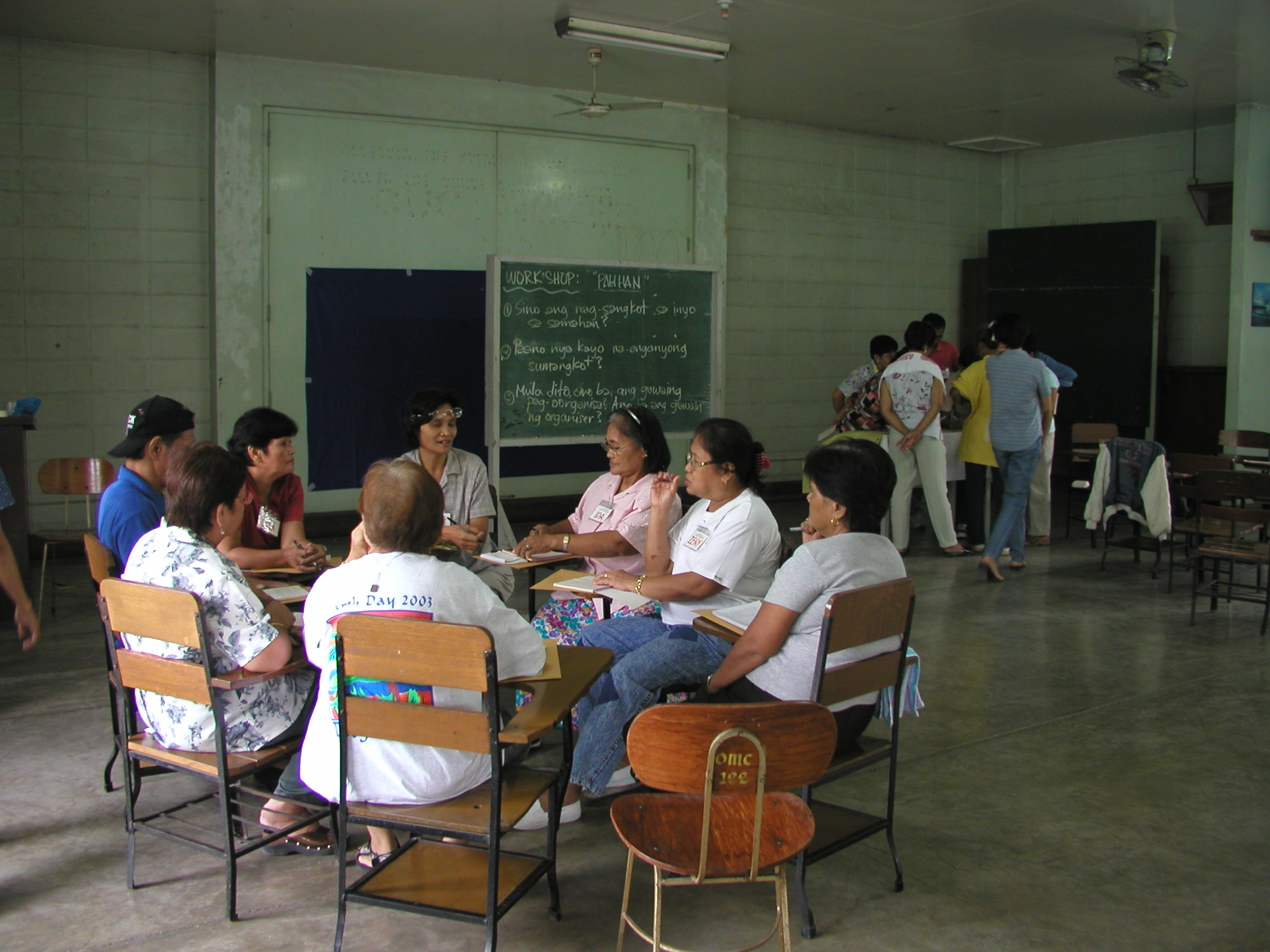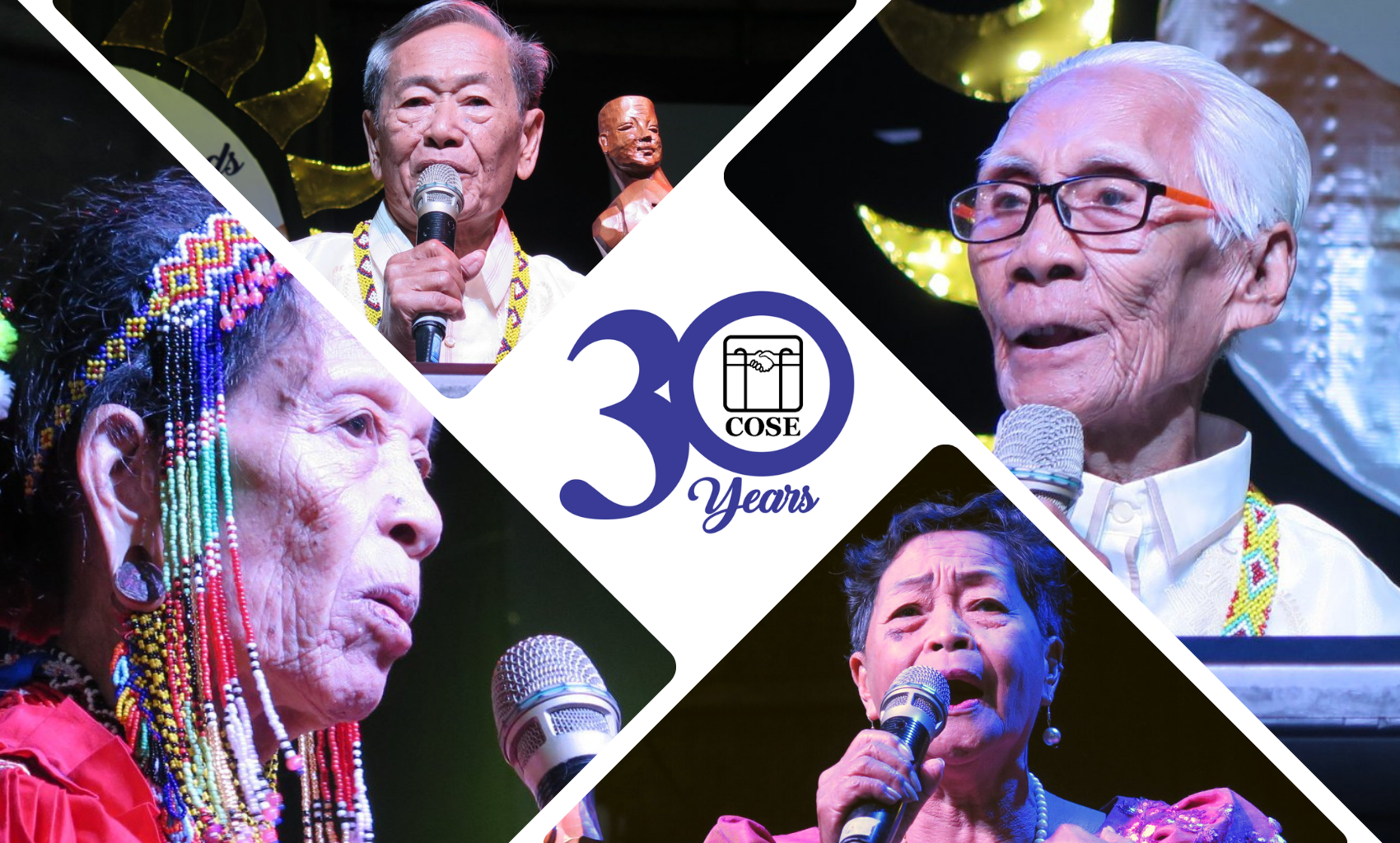Older People Organization Formation
Since 1989, the Coalition of Services of the Elderly (COSE) has been in the forefront of working with older persons in the context of rights-based and inclusive development perspectives.
Currently, COSE works with 402 organized groups of older persons in 17 provinces. COSE envisions that this will lead to a national movement of older persons.

Amidst the challenges posed by increasing poverty, social exclusion, cultural passivity, ageism and inadequate social services, the experiences of COSE show that older persons can work together and harness their collective potentials. Programs must be transformed beyond mere welfare provisions – by engaging the elderly to form organizations that can negotiate and demand more elderly-friendly development policies and programs. Older person organizations (OPOs) can initiate, manage and sustain development efforts that are more responsive to their specific needs and aspirations as older persons. Such efforts contribute to the empowering process among older persons.
The organizing process is summed up into five (5) phases: social preparation, leadership development, organization building, consolidation, and expansion. Four (4) continuing activities are identified: capacity building, project development, issue and policy advocacy, and partnership building. These activities move from simple to complex concerns, each building on the gains of the previous engagement. In actual community settings, these actions are closely interwoven and are inter-dependent. The mix of programs and activities at the community level is defined by area situation/needs and capacities of local groups, leaders and organizers.
Mustering strength and confidence from the experience with organizing Confederation of Older Persons Association of the Philippines (COPAP), COSE continue to work towards national movement of older persons.
Old people are honored in the Philippines but aging is not. Beyond all the good programs (health care, advocacy ,etc) my deepest wish is that both older people and society look at aging differently and older people become who they are supposed to be… at the peak and not end of a lifetime of growth and hence invaluable to themselves and others.

